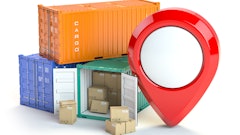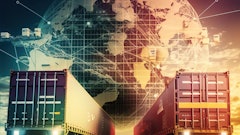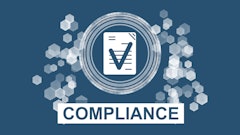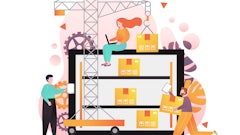From Guangzhou to New York, Taipei to London, Hong Kong to Sydney, global trade economies continue to be affected by the Severe Acute Respiratory Syndrome (SARS) virus. Although most SARS cases have been in Asia, individuals and companies around the world remain concerned about how SARS will impact their health and business.
For example, Aberdeen Group noted in an April 2003 report that although the impact on IT spending has been a relatively small $2.2 billion compared to the total $1.26 trillion spent on this market in 2003, the short period over which the loss occurred is cause for concern, especially if the losses extend into the fourth quarter of 2003 or beyond.
On a business-to-business level, Thomas van Duinen, general manager of trading company, Trimex, said, "Recently, some hardware samples from Asia arrived to a customer in the Netherlands. The manager only allowed the staff from the goods receiving department to open the package after donning protective gear — respirator, gloves and protective glasses, which caused some delay. Fortunately, we have not had any major delays because of SARS."
This is just one of many examples of how SARS is affecting trade partners worldwide. Many retail buyers and supply management professionals have altered their mix of sourcing methods to continue to keep products on retail shelves, despite travel restrictions. Because many organizations have restricted or banned nonessential travel to Asia, they have begun to locate and communicate with suppliers by using other channels, including online technology and trading companies.
Traders in Taiwan, Hong Kong, mainland China and all throughout Asia are able to help buyers place orders for production. They also ensure quality control through effective on-location management of pre-production inspection, in-line inspection, pre-shipment final inspection and in-house testing.
Being based near suppliers throughout Asia, traders' on-ground presence offers other value added services to buyers. This includes sourcing products and providing samples from different suppliers for their customer's comparison and selection. Once a selection has been made, the trader may offer research and development (R&D), packaging options and the warehousing of products prior to shipment.
Traders Receiving More RFIs from Buyers
One Taiwan trader, Eurospeed Technology Co., is a supplier of computer peripherals. It specializes in design and manufacturing of PC power supplies and cabinets. It has seen a recent increase in the use of its services by buyers. Fennie Huang, senior sales manager of Eurospeed Technology noted, "The SARS situation is keeping buyers from coming to Asia to meet with suppliers. Purchasing managers in the West are turning to us to help them with their sourcing, development and QC of products."
"I am receiving more requests for information from buyers. These requests have gone up 50 percent in the past month. We are able to accept orders for OEM production and assist satellite factories to enhance the product quality. We will also offer these new buyers the necessary financial, material and technical assistance," said Huang.
Minimizing Supplier Risks
Trimex, the trading company mentioned earlier in this article, is a supplier of complete power tool accessory programs. Located in Hong Kong, Trimex has had experiences similar to those of Eurospeed Technology since the start of the year and the announcement of SARS in Hong Kong. Van Duinen said, "For our company, SARS has some impact on sourcing and new sales opportunities. However, it does not threaten the continuity of our day-to-day business."
"We are currently focusing on minimizing supply risks by pulling our quality control activities out of the manufacturers' premises and into our own packaging facilities. Furthermore, for every supplier we have an alternative source, so if a manufacturer needs to temporarily close it's doors because of quarantine issues, we can immediately switch our pending orders to our other suppliers." At present, van Duinen noted, "The focus of our company lies for the moment on increasing our in-house product development and product enhancement for customers, and using online marketplaces to expand our supplier base."
Value-added Services to Buyers
Buyers view traders and/or agents as an important part of their sourcing strategy. Using traders helps buyers to not only reduce travel expenses, but also open doors to finance options, risk reductions, language translation services and local representation.
Eric Ryan is president of Sacramento, Calif.-based E.C. Ryan International Inc. His company designs a wide range of toys and gifts, which are manufactured in China and sold to catalog companies and other retailers in the United States. He has used traders for years, and views them as a necessity to good local representation. "Finding a good trader is the key to working with some suppliers in Asia. The traders I have used have helped me find the products I need, as well as offering me packaging, warehousing and shipping options. Given the current SARS situation in many of today's sourcing centers, the use of my trading partners has become invaluable to my business. Both now and in the future," commented Ryan.
"China is irreplaceable as a supplier of general commodities in terms of price and quality," said Craig Pepples, chief operating officer of Global Sources, a company that creates and facilitates global trade between buyers and suppliers, through trade journals, online marketplaces and CD-ROMs. "Internet requests for information from potential suppliers and traders have jumped 50 percent in April compared with April last year. This increase is higher than the growth we would have normally expected," stated Pepples.
Results of a recent Global Sources buyer survey indicate over 50% of buyers see no disruption or minor disruption to their current suppliers. Less than half see some or major disruption due to SARS. This not only shows buyers' views on the current situation, but also the uncertainty of how this is affecting buyers differently.
Given the present SARS environment, some buyers may opt to maximize their use of traders now or in the near future.
While SARS may keep buyers from meeting face to face with suppliers and attending trade shows in Asia, businesses have become more flexible and resourceful in applying different techniques and technology to meet their sourcing needs. While many buyers source direct from factories for price advantages, they recognize the value trading companies offer. Traders have long been helping buyers keep their shelves full and have learned to offer the value added services such as sourcing, development and quality control of products, they provide.
Read the iSourceonline.com article "SARS Tough on Buyers" for more information on the Global Sources buyer survey.


























